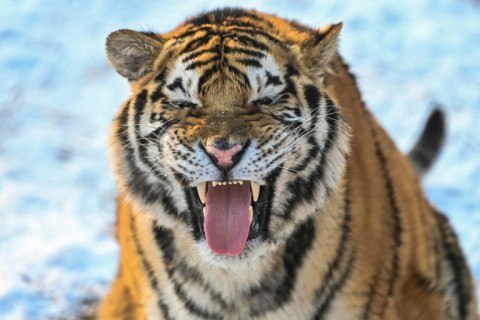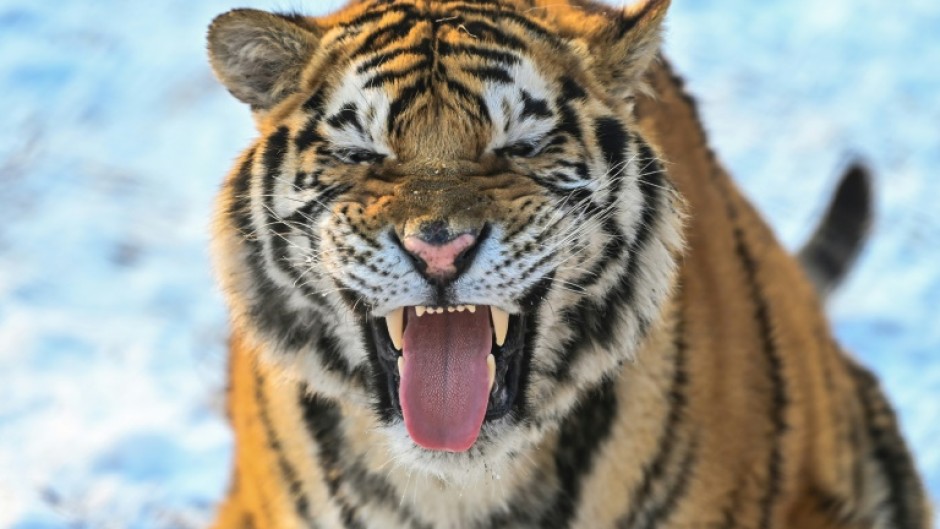
LONDON - Ask any pet owner if their beloved companion has a personality and you'll most often get an emphatic "yes". But now tiger researchers can nod along too.
A study reveals that the world's largest felines have individual character traits.
The behaviour of the 248 Siberian tigers observed through a personality test showed that the endangered cats had unique traits influencing both their success in reproduction and survival, researchers reported in the journal Royal Society Open Science.
"We found that tigers are very individual, and that people who've worked with them and know them well see their individual personalities," co-author Rosalind Arden of the London School of Economics told AFP.
The study adapted a commonly used human personality test to explore tiger traits such as confidence, sincerity, bullying and savagery in two separate populations of tigers held in semi-captivity in China.
Questionnaires with a list of 70 personality indicators were filled out by veterinarians and feeders who work with the tigers on a daily basis.
The combined results found that both tiger populations displayed characteristics that fell into two overarching personality categories: majesty and steadiness.
Tigers scoring higher for "majesty" were healthier, preyed more on live animals, and ate and mated more.
They were also "regarded by their human raters as having higher group status among tigers," the study said.
But being collaborative and gentler had its evolutionary benefits too: "steady" tigers were shown to be gentler, more sincere and more loving.
Such traits may play a role in the unusual length of time -- two to three years -- that tiger cubs remain with their mothers.
The study found very few sex-related differences in tigers' personalities, however, and father tigers have also been observed taking part in raising their young.
"It's pleasant to see that you don't have to be dominant, fierce, competitive and aggressive in order to succeed as a tiger," said Arden.
Similar studies illuminating the personality and mental abilities of primates have helped humanise them, Arden said.
"There is evidence that it does, in fact, improve animal welfare and conservation," she added.
Siberian tigers are endangered due to poaching and habitat loss. Only around 500 remain living in the wild.
- by Linnea Pedersen

